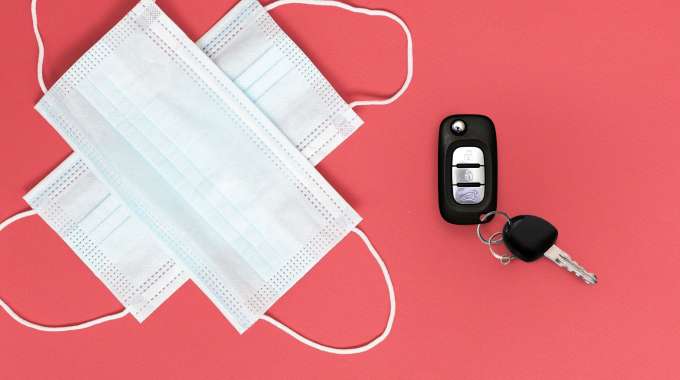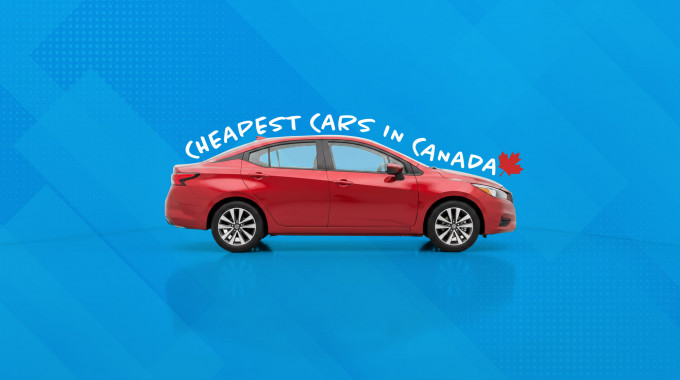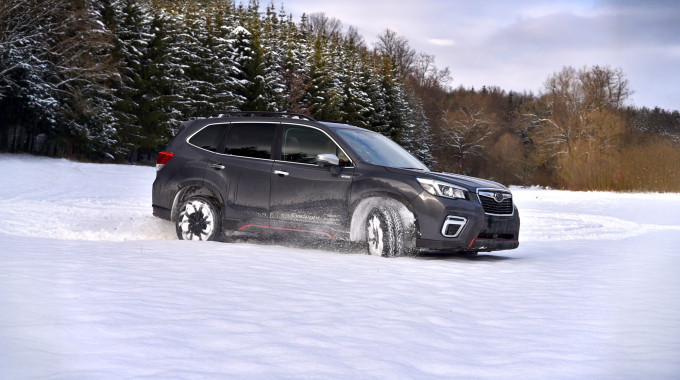
Is Buying a Car Part of Your COVID Safety Plan?
The COVID-19 pandemic has forced us to re-evaluate our lifestyle and change our behaviour patterns to stay healthy and safe. Whether it’s wearing masks when outside in the world, working from home, or shopping online – we’re all learning to adapt to new circumstances.
Another behavioural shift as a result of the pandemic is the way we view public transit. Huddled in a packed bus or train in the thick of winter with a virus on the loose? It’s like everything we’re supposed to be avoiding rolled up into one. Even jumping in a rideshare seems dicey now. Did the previous driver wipe down the steering wheel? And flying anywhere at the moment seems almost completely out of the question.
Events of the last few months have stimulated new discussion around the merits of car ownership.
But owning a car to avoid large crowds comes at a price. Are you ready to take on the financial side of car ownership? Here are a few considerations that will make the decision easier for you.
- CARFAX Canada offers a free VIN check that reveals limited but up-to-date information about your car’s history to help uncover any hidden problems. With this insight, you’ll be able to determine if you want to purchase a complete history report.
- The J.D. Power Dependability ratings can tell you everything you need to know about the reliability of any car you have your eye on.
- Transport Canada offers Canadians a free tool that will find any make, model, or year of vehicle that has been recalled in Canada.
1. Decide which vehicle features are important?
There are many factors to consider when deciding on what kind of car you want to buy – size, cost, fuel consumption, just to name a few. If your main focus is to avoid commuting on public transit, then it’s possible you’re just looking for something small and economic that will get you from A to B.
If fuel efficiency is your main concern, this might be the right time to consider an electric vehicle (EV). There are many incentives and discounts that exist for EV buyers. Otherwise, you should consider a compact combustion engine vehicle that will get you where you need to go on minimal expense.
If you have a big family, you might need something in the SUV or minivan category. The weather conditions in your area should also be a factor, especially if you’re planning to get winter ready.
2. Figure out what you can afford
Vehicles are notorious for being a depreciating asset. But depreciation hits hardest with brand new cars. That’s why a lot of savvy shoppers elect to buy used vehicles and avoid paying the premium for that new car smell. The used car market today is extremely robust and finding a great deal isn’t difficult with the right tools and resources.
That being said, if you want to buy new this might be one of the best times to strike. Manufacturers are doing what they can to boost new car sales during this COVID-induced economic turmoil, so you might be able to find a great deal.
3. Cash or finance
As important as deciding on what kind of car you’re going to buy is figuring out how you’re going to pay for it. If you’re leaning towards the used car market, you might already have enough money saved to buy the car outright. If so, that will save you money from the interest you would normally pay on a financing deal. But it also could mean—after a big withdrawal from your bank account—a sudden shock to your financial footing, leaving you vulnerable to unforeseen expenses.
Financing helps you spread out your spending over a period of time. Yes, you will be making monthly payments that include interest, so in the long run you do end up paying more. But there’s also an argument to be made that now is a great time to buy because interest rates are lower, and dealerships are offering special deals to get you behind the wheel.
Another benefit of financing is it can help you determine exactly what you can afford. Getting pre-approved for a car loan gives you the parameters of your budget, making the decision process easier. The provider who pre-approves your loan will usually be able to connect you to local dealerships that can help you find the kind of car you’re looking for.
4. Remember running costs
Purchasing a vehicle is not where the expense of owning a car ends. Before you sign papers, you need to plan for the unholy trifecta of car maintenance, fuel, and insurance. If you manage these ancillary costs correctly, the price pain can be minimal.
Insurance will likely be your biggest expense and its cost is often not something you have much control over. However, there are ways you can find cheaper auto insurance, assuming you don’t live in a province like Manitoba, where the provincial government operates a monopolistic industry. As for gas prices, there are ways to save beyond driving around hunting for the lowest price. Benefits-based credit cards, pricing apps like Gas Buddy, and fuel-efficient vehicles will reduce your consumption and keep more cash in your pocket.
Is it time to go electric?
All this talk about saving on gas consumption would be a moot point if you decided to buy an electric vehicle. As we mentioned earlier, electric and hybrid vehicles come with provincial and federal incentives as part of a larger societal push towards reducing carbon emissions. Now, before you get too excited about buying a Tesla (with a starting price of around $52,000 for the Model 3) check out all EV and hybrid options available at a more economic price point and featuring a similar battery range.
5. Buy reliable
One of the big differences in shopping for a car in this strange pandemic environment is the reluctance to visit dealership lots or meet with strangers in the private marketplace. It’s safer and more reliable to do your research online and then explore making a purchase with an online retailer or a dealership with safe protocols in place to limit face-to-face interactions.
No matter if you choose to work with a dealership, online retailer, or private seller, there’s great deals to be found if you do some homework. But from the perspective of reliability, it is helpful to remember that dealerships (and online retailers) are obligated to disclose pertinent information about each car they are selling, while a private seller is under no such obligation.
Furthermore, dealerships and online retailers rely on positive reviews and word-of-mouth, especially in a time of heightened online activity. It’s in their best interest to see that you’re happy with your purchase and that their online reputation stays positive.
Here are a few ways you can do some quick research of vehicle models on your shortlist:
Start the journey to a new car today
We know these are strange times and everyone is doing what they can to stay safe and healthy. It’s fair to feel uneasy or reluctant about public transit and ride share. Even if you want to take a vacation, road trips seem like the best option for the foreseeable future.
Get pre-approved and browse vehicle options with Canada Drives today. No matter what your credit situation looks like, a car loan pre-approval can help you narrow down your options and get driving in your very own car sooner!
![]()
More content about







